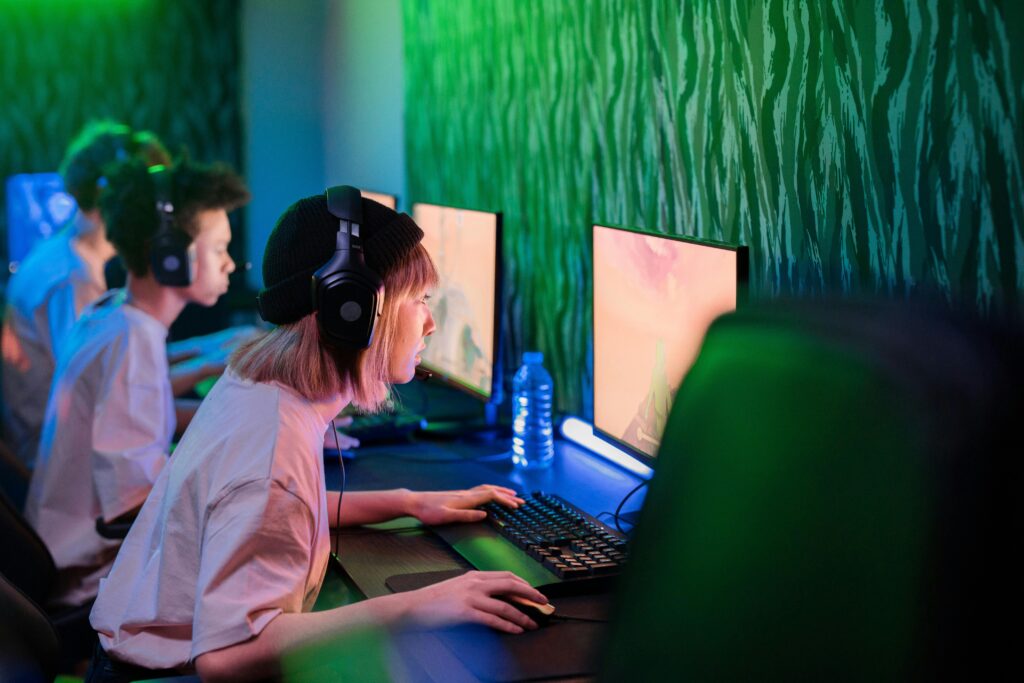In the ever-evolving world of online gaming, live events and real-time interactions have become a game-changer. Developers are continually pushing boundaries, blending virtual worlds with dynamic, real-time experiences that captivate millions of players worldwide. This integration has not only redefined the gaming industry but has also set new standards for entertainment as a whole.
What Are Live Events in Online Games?
Live events in online games are time-sensitive, dynamic occurrences that players can participate in during a specific period. These events can include:
- Special Quests and Challenges: Limited-time missions or tasks that offer exclusive rewards.
- Seasonal Events: Celebrations aligned with real-world holidays or seasons, such as Halloween-themed missions or Christmas bonuses.
- Concerts and Performances: Virtual concerts, often hosted by famous artists, where players can experience live music in the game.
- Storyline Expansions: Interactive events that introduce new narratives and gameplay elements.
- Competitive Tournaments: Real-time multiplayer competitions with global leaderboards.
These events often feature unique rewards, such as rare items, skins, or achievements, encouraging players to actively participate.
The Role of Real-Time Interaction
Real-time interaction is another pivotal element shaping modern online games. It involves players interacting with each other, the environment, or live events in real-time. This interaction fosters a sense of community and immersion, making the gaming experience more engaging and social.
Examples of Real-Time Interaction
- Multiplayer Battles: Players team up or compete against each other in real-time.
- Dynamic World Changes: In-game environments evolve based on players’ collective actions.
- Live Chat and Streaming: Players communicate through voice or text, or even stream their gameplay live to others.
- Collaborative Events: Groups of players work together to achieve common goals, such as defeating a world boss or building virtual structures.
The Appeal of Live Events and Real-Time Interaction
The integration of live events and real-time interaction adds a layer of unpredictability and excitement to online games. Here are some reasons why they are so appealing:
- Unique Experiences: Live events often offer one-of-a-kind moments that players can’t replicate later.
- Social Connection: Real-time interaction fosters friendships and alliances within the gaming community.
- Immersion: Dynamic events make the game world feel alive and responsive.
- Exclusive Rewards: Players are motivated to participate to earn limited-time items or achievements.
- Global Participation: Live events often attract a worldwide audience, making them inclusive and diverse.
How Developers Create Immersive Live Events
Developers invest significant effort and creativity into designing live events that captivate players. Here are some key strategies:
- Partnerships with Celebrities: Collaborating with real-world artists or influencers to host virtual concerts or appearances.
- Story-Driven Content: Creating narratives that unfold during the event, drawing players into the story.
- Interactive Gameplay Mechanics: Introducing unique gameplay elements, such as puzzles or cooperative challenges, exclusive to the event.
- Real-Time Updates: Keeping the event dynamic with real-time changes based on player actions.
For example, games like Fortnite have revolutionized the concept of live events. The game has hosted virtual concerts by artists like Travis Scott and Ariana Grande, attracting millions of players who could interact and experience the performances in a shared virtual space.
The Role of Technology in Enabling Live Events
The success of live events and real-time interaction in online games heavily depends on advanced technology. Key technological components include:
- Cloud Computing: Ensures seamless gameplay by managing massive data and server loads.
- Low-Latency Networks: Provides smooth, lag-free interactions between players.
- AI and Machine Learning: Enhances NPC (non-playable character) behavior and adapts the game environment based on player actions.
- AR and VR: Brings immersive, life-like experiences to players.
- Cross-Platform Integration: Allows players on different devices to participate together.
By leveraging these technologies, developers can deliver complex live events that feel authentic and engaging.
Real-World Examples of Live Events
Here are some notable examples of live events and real-time interaction in online games:
- Fortnite’s “The End” Event: Fortnite’s “The End” event drew millions of players to witness the destruction of the game’s original map, leading to the launch of Chapter 2. This event showcased the power of storytelling and real-time engagement.
- World of Warcraft’s Pre-Expansion Events: Blizzard’s MMORPG frequently introduces pre-expansion events, where players can experience story teasers, battle unique enemies, and earn exclusive rewards before a new expansion launches.
- Roblox Concerts and Experiences: Roblox has hosted events featuring artists like Lil Nas X and Twenty One Pilots. These events often blend music, gameplay, and social interaction, creating a hybrid entertainment experience.
- Pokémon GO Community Days: Niantic’s augmented reality game organizes real-world events where players gather to catch rare Pokémon, complete challenges, and earn bonuses.
The Future of Live Events in Online Gaming
The future of live events in online gaming is bright, with endless possibilities for innovation. Some emerging trends include:
- Metaverse Integration: Virtual worlds where live events are seamlessly integrated with other activities.
- AI-Driven Personalization: Events tailored to individual player preferences.
- Global Simultaneous Participation: Technology enabling real-time interaction for millions of players across the globe.
- Mixed Reality Experiences: Combining real-world elements with virtual gameplay for hybrid events.
- Decentralized Economies: Using blockchain to enable player-driven economies and ownership of in-game assets.
Why Live Events Are Critical for Game Longevity
Live events and real-time interactions are not just about short-term engagement; they play a significant role in the long-term success of online games. They:
- Boost Player Retention: Frequent events keep players coming back for new experiences.
- Enhance Monetization: Events often include exclusive microtransactions.
- Build Community Loyalty: Shared experiences create strong bonds among players.
- Keep Content Fresh: Regular events ensure the game remains dynamic and exciting.
Conclusion
The integration of live events and real-time interaction in online games has transformed the industry, creating unique, engaging, and immersive experiences for players. By leveraging advanced technology, creative storytelling, and a commitment to innovation, developers continue to push the boundaries of what is possible in gaming. As the gaming landscape evolves, live events will remain at the forefront, shaping the future of entertainment and community-building in virtual worlds.



